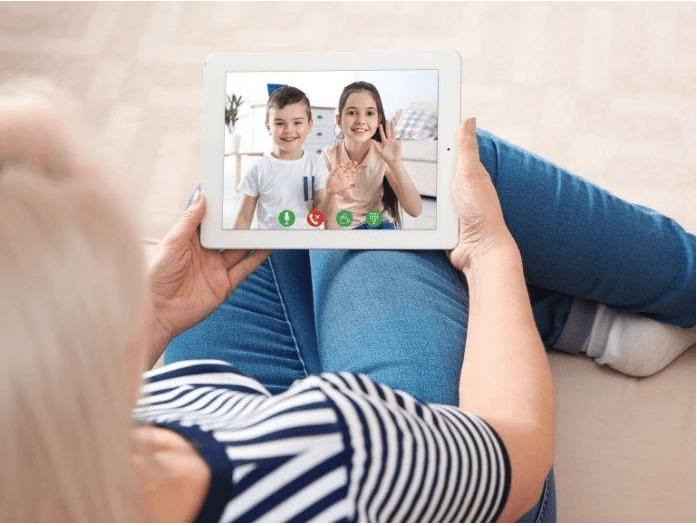
Schools, restaurants, and gyms have been closed for at least a few weeks, and now we’re hearing the COVID-19 crisis could last several months. Hunkering down at home has its benefits, but it can also be stressful. Health experts have some suggestions about how to manage anxiety about COVID-19.
Stay in Touch with Coworkers, Family Members, and Friends
Past generations that faced public health crises didn’t have the level of connectivity we do now. Use technology to stay connected and keep each other’s spirits up. Many businesses that operate with employees working from home make use of software and cloud-based technologies to keep everyone connected. Laptops and tablets, video and text chats, e-mail, shared drives, apps, and mobile phones keep everyone in touch and moving forward with their work. Video calling is available on many personal mobile devices and computers as well. Seeing your loved ones on screen will never match visiting them in person, but as long as we’re practicing social distancing, it works pretty well.
Take a Break from the News and Social Media
There really is such a thing as too much information. Watching the news obsessively and checking for new statistics every few minutes is pointless—there’s only so much “new” news each day. Looping the same information over and over will only add to anxiety. According to the CDC, too much news can be upsetting and contribute to anxiety. Furthermore, while social media is a great way to stay in touch, it’s also notorious for spreading rumors and false information. Beware of sharing every new alleged self-diagnostic test or home remedy you see. Stick to reputable sources such as the Centers for Disease Control, the World Health Organization, your local public health office, and other respected medical sources.
Take Care of Yourself and Practice Relaxation
Keep up healthy routines such as eating nutritious meals at the regular times. Get some fresh air and exercise. Find a relaxation routine that works for you—yoga, deep breathing, mediation, or stretching can help. Avoid drugs and alcohol, and get plenty of rest. Follow the common-sense recommendations from the CDC and medical professionals about washing your hands frequently, not touching your face, covering coughs and sneezes, and distancing yourself from crowds and sick people. Disinfect frequently touched surfaces such as doorknobs and phones. If you experience symptoms that concern you, contact your doctor to seek advice about next steps.
Maintain Routines
Even if school is out and you’re working from home, maintaining daily routines as much as possible will help ease anxiety. Get the kids online to do their schoolwork during regular school hours, and be at your own desk when you would ordinarily arrive at the office. If necessary, rearrange your living space a little so that everyone has access to a workspace they can call their own. Remember that too much screen time can reduce physical activity and lead you and your kids down rabbit holes of misinformation and worry. Take a break to play a game or to take a walk as a family in order to stay positive and maintain your fitness—while maintaining social distance from larger groups of people, of course.
If these suggestions aren’t helping you manage anxiety about COVID-19, contact your mental health professional.





